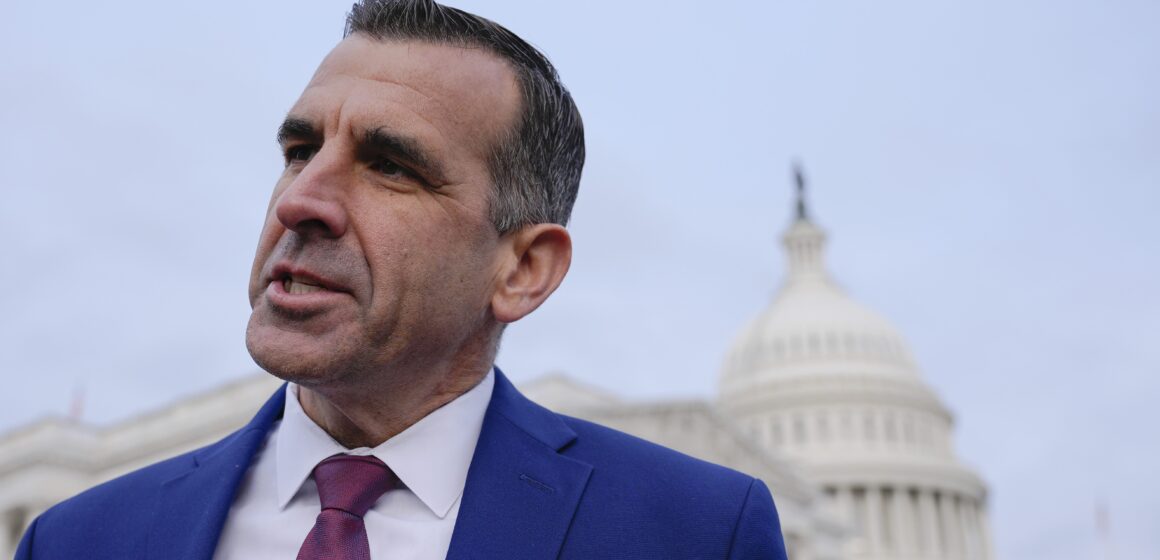It’s not often that Mountain View gets the chance to shape housing legislation that could have an impact far beyond its borders. But the city recently inspired the introduction of a bipartisan bill that could make it easier for municipalities to use federal funds for affordable housing.
Last week, U.S. Reps. Sam Liccardo (D-California) and Mike Flood (R-Nebraska) introduced legislation that would “unlock” restrictions on how cities spend Community Development Block Grants. The federal program gives money to local municipalities for community development, including expanding housing for low- and moderate-income households.
The Unleashing Needed Local Options to Construct and Keep Housing (UNLOCK) Act would provide local municipalities with more flexibility to use CDBG funds to construct affordable housing.
“Republicans and Democrats have a lot to disagree about these days for good reason, but there’s a lot we should be able to agree on with regard to housing,” Liccardo told the Voice.
The need for more housing and finding ways to make it easier to build are at the top of the list, said Liccardo, who represents the 16th District, which includes Mountain View.
Seeking input, the House Subcommittee on Housing reached out to local municipalities for ideas on how to cut through the red tape. Mountain View proposed some recommendations that hit home for Liccardo, including making it easier to spend CDBG funds.
“It started from the ground up, which is the local community of Mountain View saying, ‘Hey, we got a problem,’” Liccardo said.
Each year, Mountain View gets an annual allocation of CDBG funds, based on a federal formula. It typically amounts to about $600,000 per year, according to Mountain View Housing Director Wayne Chen. While Mountain View has been able to use CDBG funds to improve existing buildings, the city has run into challenges using the funds for new construction projects because of particular CDBG conditions, Chen said.
The program requires that cities work with community-based development organizations, which are local organizations that are federally certified to carry out projects.
The CDBG program also stipulates that local jurisdictions must have an adopted revitalization plan. That’s something that Chen said many cities lack, noting that the program was created decades ago largely to address issues of urban blight.
The UNLOCK bill seeks to broaden the types of organizations that could use CDBG funds. It doesn’t have to be a community-based development organization, and a city wouldn’t need a revitalization plan for a project to get funded, Chen said.
The legislation could help Mountain View further projects in its affordable housing pipeline, Chen said, including projects at 87 East Evelyn Ave., 57 and 67 East Evelyn Ave., 1020 Terra Bella Ave., and 96 West El Camino Real, the former Cusimano Family Colonial Mortuary site.
Mayor Ellen Kamei said that Mountain View is particularly well positioned to build more affordable housing, given its robust queue of projects. The CDBG funds could help get some of the projects over the finish line. Kamei also noted that housing shortages and affordability were not just issues in Mountain View or even California.
“This is something on a national level, and so hopefully, with bipartisan support, this will be able to move forward,” she said.
“This is not a Congress that is particularly adept at bipartisan action,” Liccardo said. “The hope is that by hitting a few singles, we might actually be able to create opportunities and build relationships to do much more important things like avoiding a shutdown of the government.”
For Liccardo, while the UNLOCK bill could help cities break ground on affordable housing projects, it’s more like a single hit, not a home run. He added that he was working on other housing legislation as well.
This story originally appeared in the Mountain View Voice. Emily Margaretten joined the Mountain View Voice in 2023 as a reporter covering City Hall.



Leave a Reply
You must be logged in to post a comment.